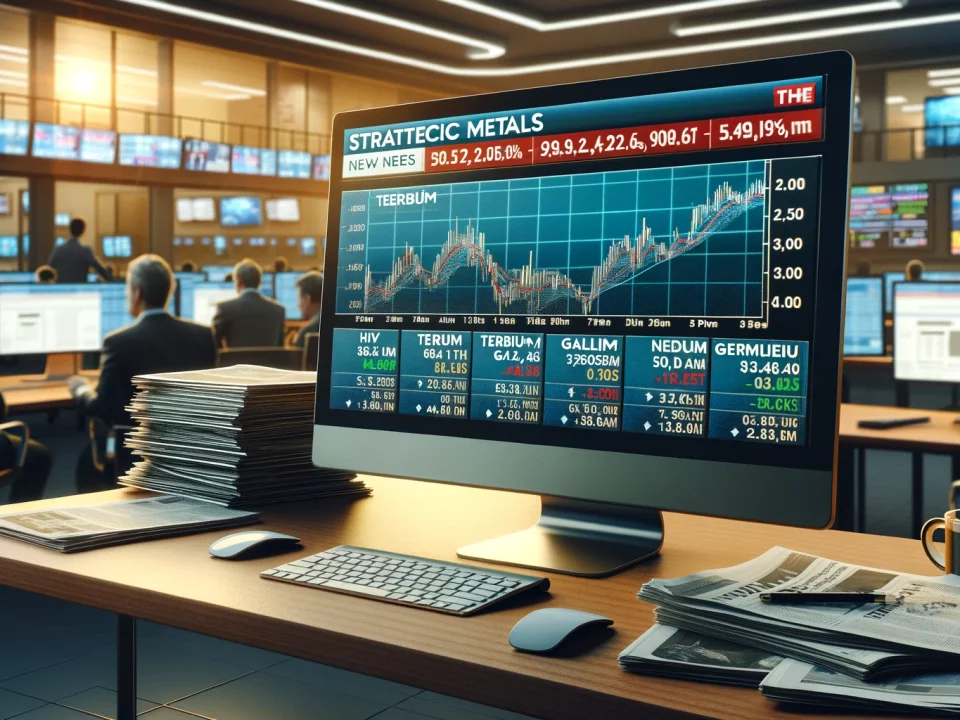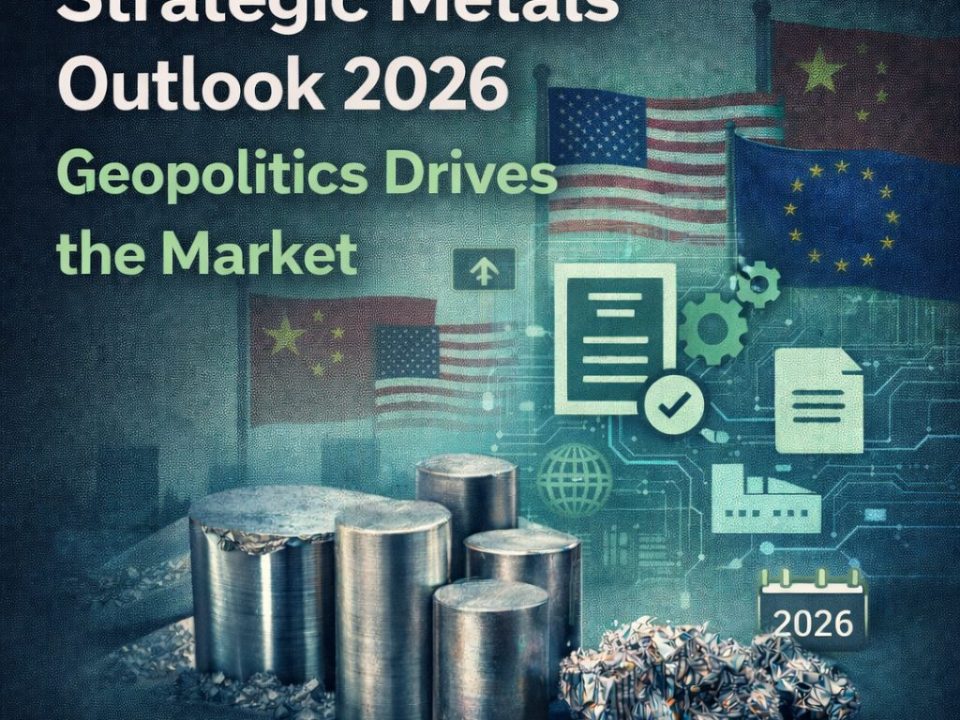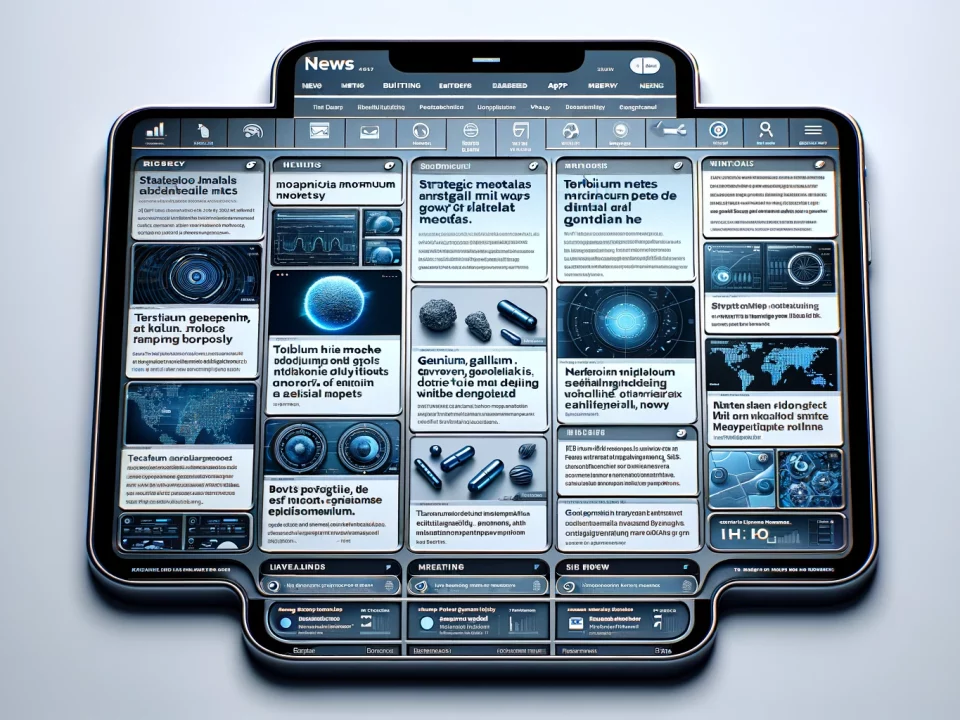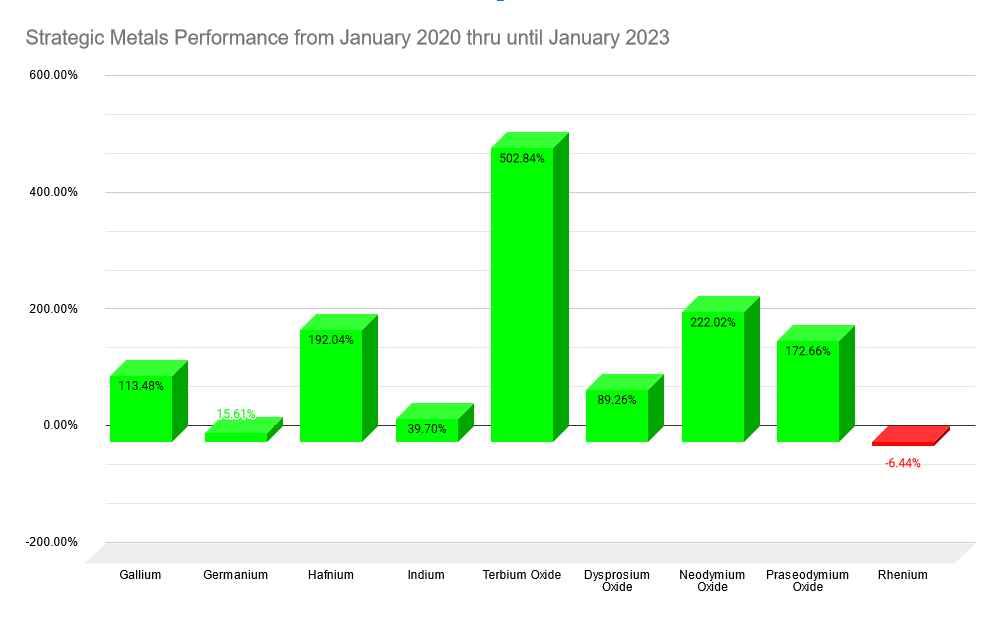
Rare Earths Performance UpdateThe Decade so Far
January 6, 2023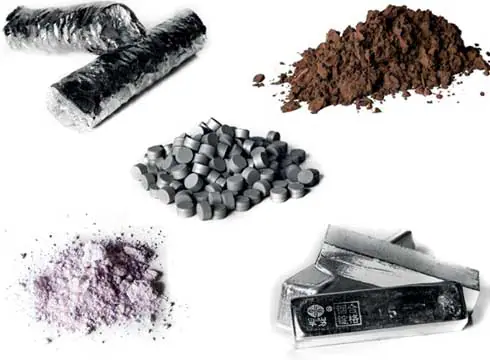
Meet the Spice Metals
April 10, 2023Owning strategic metals as physical assets is an intelligent way of diversifying. Strategic Metals are the backbone of manufacturing in this 21st century. Before buying, however, one should be well informed because there are several critical items to consider when investing in commodities such as Rare Earth Metals.
Many private investors want to put their wealth into tangible assets in times of high inflation. One form of investment is the purchase of strategic metals, which are increasingly in demand by many diverse and varied industries. Investors buy the strategic metals in physical form and sell them to the processing industry later.
Essentially investors get to enter the value chain right at the beginning where these valuable raw materials are in the upstream of what is, ultimately, trillions in downstream GDP.
Those who want to diversify their portfolio with such industrial commodities and avoid unnecessary risks and losses should take these seven suggestions VERY seriously, much in tandem with if you are going to jump out of an airplane we suggest having a parachute on your back.
1) Buy Strategic Metals only in Original Packaging.
The manufacturing industry is the most important purchaser of strategic metals. Whether the industrial buyers will purchase the technology metals and rare earths depends, among other things, on the packaging. Only if the raw materials are in original packages from the supplier can they be unambiguously assigned a batch number and the chain of custody certificates. If the quality and origin analyses can not be traced then this could make new product quality tests necessary and thus make reselling more difficult.
2) Pay Attention to Industrial Quality.
Depending on the production process, companies require raw materials in certain forms. Usually ingots (bars) or oxides (powder). The specifications include purity and the compounds with other materials. With Hafnium, for example, a technology metal for superalloys in turbines, the purity grade in bar form should be above 99.9%. But the delivery form also represents a quality criterion. In the case of the technology metal Indium, the industry prefers ingots.
If the raw materials purchased do not meet industry requirements, liquidating them is difficult or perhaps impossible. Only an industry supplier like ourselves would know what form and purity each particular industry will and will not purchase, which then enables us to offer industrial-grade Rare Earths to private investors.
3) Keep an Eye on the Industrial Demand.
The demand for metals for electric cars, renewable energy, and hydrogen production will increase significantly in the years to come. It is estimated that the demand for these “energy transition metals” will not peak until the 2040s. At the end of the day, the increasing demand will vary depending on the metal. Therefore, obtaining detailed information on the individual raw materials is worthwhile. We suggest organizations such as the International Energy Agency (IEA), and specialist portals such as our website www.strategicmetalsinvest.com provide up-to-date information on developments in the raw materials markets and relevant fields of application as well as pricing in real-time.
4) Make Your Own Raw Material Selection.
The gathered information about strategic metals can be a sound basis for independent purchasing decisions. Often, an individually compiled commodity portfolio is preferable to a standardized basket of commodities, which can only consider preferences and wishes to a limited extent. Ideally, not all money should be invested in a single metal or commodity but rather widely spread over various metals and industries. Diversification within diversification is the name of the game.
5) When Buying Strategic Metals, Think of Reselling Possibilities.
When investing in strategic metals, the subsequent resale to the processing industry plays an important role. For this purpose, the supplier should be able to present liquidation options. These consist of direct repurchase or sales mediation to the industry. Ideally, the trader should be able to name industries and companies among the customer base on the industry side. In our case after nearly 25 years in business, we have more than 2,000 industrial clients in more than 70 countries. This is our core business, and it is only because of our core business as an industry supplier we can safely offer rare earths to private investors and provide the all-important exit.
6) Beware of Promised Yields when Buying Strategic Metals.
It is possible to speculate on the price development of individual metals. However, binding statements on how much return can be achieved with the technology metals and rare earths are a massive red flag. The price formation is subject to various factors, such as industrial demand and the development of areas of application. Besides the latter, new fields of application are constantly being added, such as renewable energies, but in some traditional fields of application, the demand for raw materials is being reduced by substitution. In addition, natural events, pandemics, or political conflicts, which are almost impossible to predict, also affect the commodity markets. Instead of focusing on returns, it makes more sense and is more responsible to refer to the possibilities of maintaining purchasing power and protecting against inflation.
7) Find a Trustworthy Rare Earth Metals Trader.
Very few private investors are experts in buying strategic metals and therefore require intensive advice on the investment form and the individual commodities. As a rule, reputable providers can be recognized by a few characteristics:
- They provide expert information about industrial metals and the form in which the economy requires them.
- They get by without promises of value increases.
- They present their contacts to the processing industry and thus show liquidation possibilities for a later date.
- They provide information about professional storage options and do in fact, have their own storage facility.
- They have a direct connection to the industry.
- And: They do not push you to purchase quickly because buying strategic metals requires time and a specific information-gathering period to begin.
Rare Earth Metals are a very special asset class. Those who know their unique features and are well-informed can benefit from owning the raw materials critical to all nations’ economic prosperity.
Strategic Metals Invest provides comprehensive information on rare earths and their many and varied fields of application.
Please consider us at your service, and happy to assist you in learning more about this unique alternative asset class. Download our brochure or contact us for more info.



